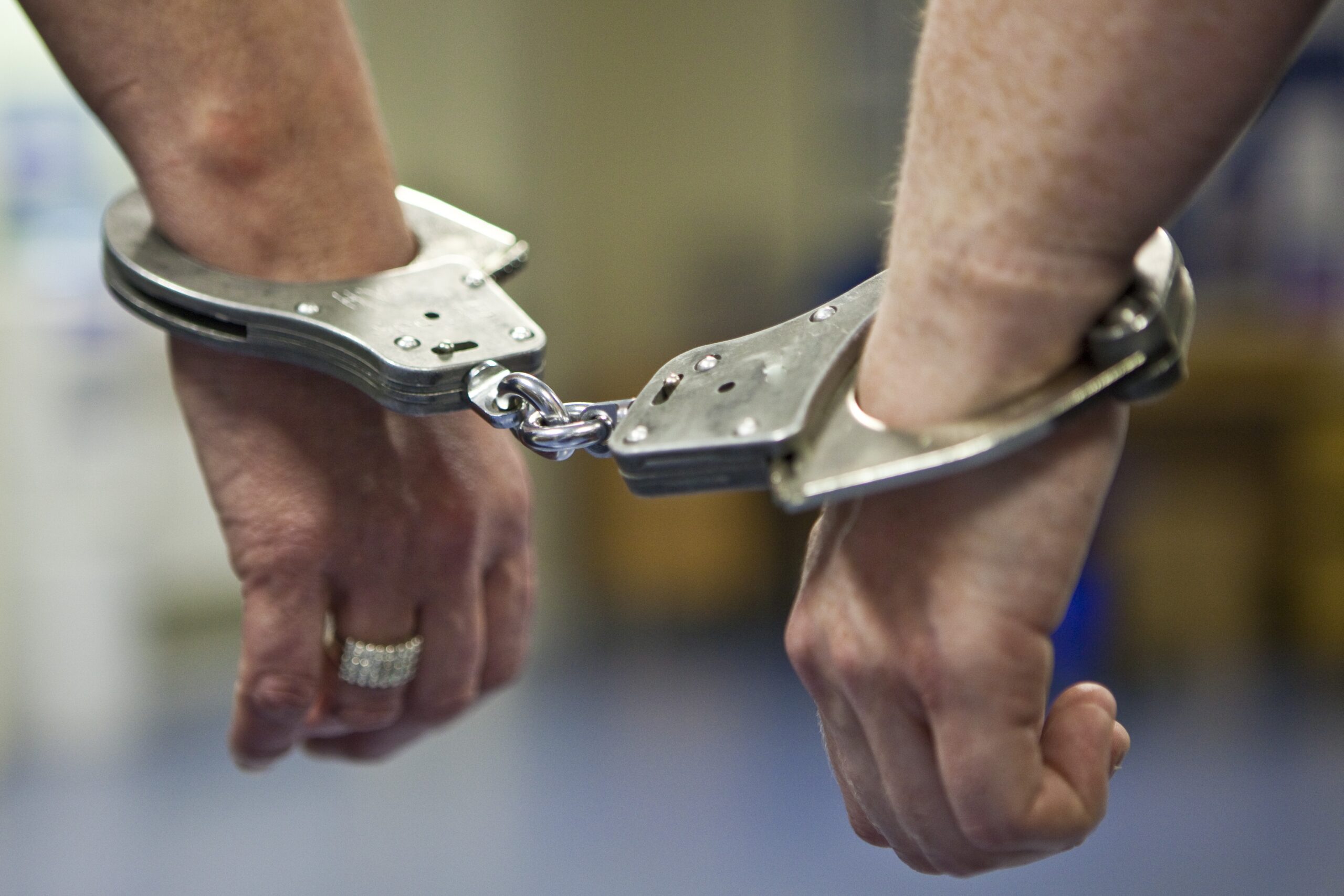Family Engagement
We provide support to both individuals in prison and to their family or significant others. This may include advice, emotional or practical support.
Examples of support include:
- How to maintain family ties whilst in custody
- How to explain prison to children
- Contact with schools
- Support to engage with statutory services e.g. Children’s Services, CAFCASS
- Signposting and general advice
- Parenting skills courses
- Pre/post video calls
- Support for individuals with no family contact
- Preparation for Resettlement Leave and Release on Temporary Licence
- Support to apply for parole, Home Detention Curfew etc
Families can access specific support including:
- How to book a visit
- What to expect on a visit
- What is required on a visit
- Security processes
- Emotional support, advice and guidance for both the man and family; before, during and after the visit
- Support to prepare for a loved one returning home as part of their preparation for release

Employment Support
Sustainable employment is one of the single most effective factors in preventing re-offending. CFO Evolution offers tailored support for people with complex needs to address barriers to employment and support reintegrate into the community, and we deliver this in four local prisons.
This can include
- employability support, CV writing,
- disclosure advice,
- access to employment opportunities, including employer advocacy
- debt support,
- confidence building,
- motivational work,
- access to short courses
- through-the-gate support

RECONNECT
We work in partnership to deliver RECONNECT, an NHS care after custody provision that supports anyone in HMP North Sea Camp with an identified health need who would struggle making the transition from prison to community-based services once release and helps them to maintain their health and wellbeing.
We can offer support up to 12 weeks pre-release and 6-month post release and are able to closely with external agencies where health and social care is a need, and link with RECONNECT services across England for individuals who are being released out of the area.
Examples of support include:
- Mental and physical health support
- Accessing primary care via a GP surgery
- Substance use support
- Financial help
- Housing
- Barriers to accessing employment, training or education
- Language barriers
Visiting Times
Monday: Closed
Tuesday: Closed
Wednesday: 1:45pm to 3:45pm
Thursday: Closed
Friday: Closed
Saturday: 9:30am to 11:30am and 1:45pm to 3:45pm
Sunday: 9:30am to 11:30am
Book OnlineGetting here
There is a visitor car park just before the entrance to the prison and you can report to the gate lodge on arrival.
To plan your journey by public transport, use National Rail Enquiries.
The closest railway station is Boston. The prison provides transport to and from the station, which must be booked at the time of booking your visit.
Contact information
Visits Booking line: 01205 769368 – The booking line is open Monday to Friday: 9:30am to 11:30am and 2:30pm to 3:30pm and on Saturday and Sunday: 2:30pm to 3:30pm
Telephone: 01205 769 300 – Open 24 hours. If you believe a prisoner is at immediate risk of harm, contact this number and ask for the Orderly Officer, explaining that your concern is an emergency.
Fax: 01205 769 301
Safer Custody Phone Number (for non-emergency concerns): 01205 769359 or complete a Safer Custody Contact Form on the Prisoners’ Families Helpline website.
Address
HMP North Sea Camp
Croppers Lane
Freiston
Boston
Lincolnshire
PE22 0QX
Governor: David Nicholson BEM
We value feedback about our services, as this helps us to learn and improve. If you wish to share a compliment, submit a complaint or provide feedback about your experience of any of our services. If you would like a response, please remember to include your contact details.
Thank you
Who’s eligible for support
Our prison-based services are available to any prisoner in the prison, regardless of offence. Some services are aimed at individuals with particular needs, or at particular points within their sentence or period on remand. If we cannot help, we will try to identify an alternative service or provision that can.
Useful information
The main things that you will find it useful to bring with you are:
- Money
- Contact details for family and friends.
If you have any money with you when you attend court, this will be put on a prison account for you and you can use it on your weekly ‘canteen’ for phone credit, vapes and extra snacks and toiletries. It is useful for you to bring money with you to court for this reason but if you don’t have any, you will be paid a little money in prison anyway.
You cannot take vapes or toiletries into the prison with you. If you have any, these will be disposed of in Reception. If you have a mobile phone, wallet, keys or any other valuables, these will be stored securely in your valuables box in the prison. The only thing you will be able to take into the main prison with you is your underwear and shoes. You will be given fresh clothing on arrival and the clothes you are wearing will be stored for you and returned on your release. If you are on unconvicted remand, you are allowed to wear your own clothes in the prison but you will need to put in an application to Reception to get permission for a friend or family member to bring these in on a visit.
When you first come into the prison, it can take a bit of time to get used to the prison regime and rules. Here is some information about prison rules and jargon to help you get started. This list does not cover everything and you will find more information in your induction book. Prison rules are designed to help everyone.
Prison Rules
- The prison does not tolerate any violence or poor behaviour so you must treat all prisoners and staff with respect, regardless of their individual characteristics.
- When you come out of your cell, you must be fully dressed and wearing shoes/trainers.
- Do not borrow vapes or snacks from anyone else in the prison; you could get into trouble with prison and could face warnings or adjudications. Also if you borrow something from another prisoner, most expect you to pay at least double back (this is called ‘double bubble’) and so you will quickly get into debt. Sometimes when people are in debt, they may face threats or intimidation from others.
- The possession and use of any drugs (unless prescribed by healthcare) or alcohol is not allowed in prison. The prison does regular searching and testing. You should not give or receive medication from anyone else in the prison.
- ‘Association’ is the time you are allowed out of your cell. You will hear 2 bells at the end of association. After the first bell, you must make your way back to your cell. By the second bell, you need to be back in your cell.
- Your cell call bell is for emergencies only.
- You should call prison officers and Governors by their surname, e.g. Mr/Mrs Smith/Gov Smith. Most agency staff (such as Resettlement and Addaction) will introduce themselves by their first name and you can call them by this.
Prison jargon
‘Boss’/’Gov’ – what male prison staff are called if people do not know their name.
‘Miss’ – what female prison staff are called if people do not know their name.
Padmate – person you share your cell with.
HDC – home detention curfew – the date you could get released on tag / electronic monitoring, if the prison agrees this is suitable.
ARD – automatic release date – the date you get released, usually half way through your sentence.
BCST – basic custody screening tool – this is an interview usually done by an Offender Supervisor the day after you arrive in prison. This is followed by a second interview with the Through the Gate team within 8 days of you arriving in the prison.
Meds – medication
Assoc – association time
IMB – Independent Monitoring Board, group of volunteers who monitor the daily life in prison to ensure everyone is being treated fairly. You can request to see the IMB by putting in an application to them
General app – general application; a form available from all wing offices that you can use to ask for support from services or make general requests to the prison.
Comp 1 – complaints forms, also available from any wing office.
OMU – offender management unit, the team of offender supervisors and probation staff within the prison
OS – Offender Supervisor, your allocated person in OMU.
OM – Offender Manager, your outside probation officer. Also known as Probation Practitioner
Family visits – special visits, just for families or significant others, with extra activities, often held during the school holidays. The dates for family visits can be found in each wing office. You need to apply for these in advance.
To help you keep in contact with family and friends while you are in prison, please bring their full names, dates of birth, phone numbers and addresses with you, written on a piece of paper.
Upon arrival at the prison, you will be entitled to a 2 minute reception phone call. During this call, it is useful to make sure your family/friend has your prison number (you will be issued with this on arrival at the prison) and the visits booking telephone number. On the next working day you will attend a prison induction when you will be able to fill in a form to ask for your family and friends phone numbers to be put onto your phone account. The numbers will usually take 2-3 days to be approved. You will also be asked to add any potential visitors to your visitor list. This must be done before a visitor can book a visit, and can take around two weeks to process.
Your family and friends can also keep in contact using www.emailaprisoner.com and www.prisonvoicemail.co.uk. You may find it useful to give your family and friends these details before you attend court.
Once approved on your visitors list, family and friends can apply to visit you in prison. A convicted prisoner is usually allowed two 1-hour visits every 4 weeks. A prisoner on remand is usually allowed three 1 hour visits a week. Exact rules can be found on the information page of the relevant prison.
Every prison has a dedicated Families Team, who are there to provide information, advice and support about anything relating to families and significant others, including how to keep in touch, how to trace family you’ve lost touch with, parenting skills, and lots more. An application can be submitted via the prison wing office to get help from this team.

